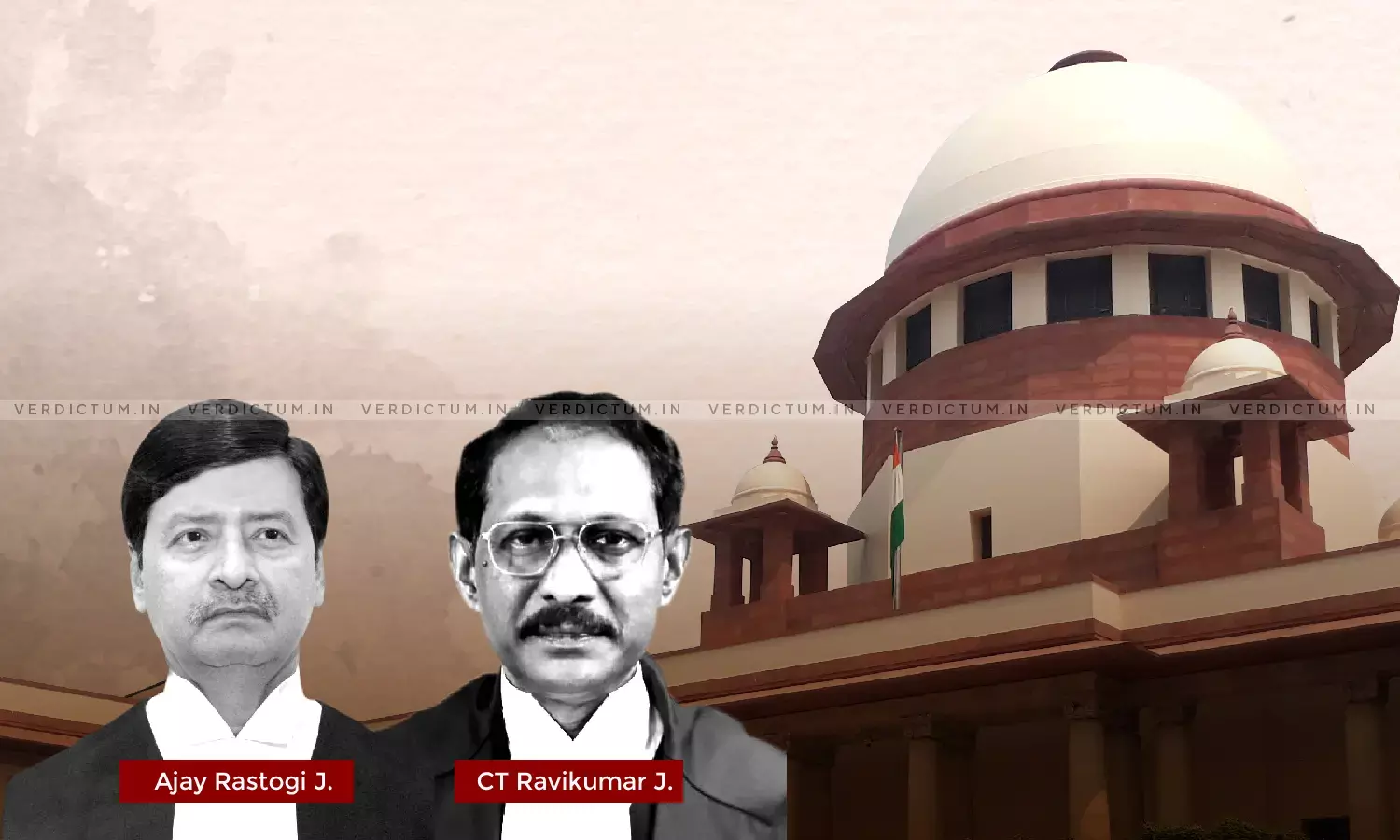Order XIV Rule 2(2)(b) CPC: Limitation Issue Can Be Framed As Preliminary Issue Where It Can Be Decided On Admitted Facts- SC

The Supreme Court has observed that in a case where the question of limitation could be decided based on admitted facts, it could be decided as a preliminary issue under Order XIV, Rule 2(2)(b) of Code of Civil Procedure (CPC).
"…it is clear that the issue limitation can be framed and determined as a preliminary issue under Order XIV, Rule 2(2)(b), CPC in a case where it can be decided on admitted facts.", the Bench of Justice Ajay Rastogi and Justice CT Ravikumar noted.
In this case, the plaintiff had prayed before the Trial Court for a decree declaring that the Plaintiffs are the co-owners in the allotment of the suit Plot and the Defendant No.5 is not the exclusive allotted/owner of the said residential plot in suit.
The Trial Court had framed a preliminary issue on the question of limitation, evidently, upon forming the opinion that case may be disposed of on an issue of law and that it warrants postponement of settlement of other issues until after that issue has been determined and to deal with the suit in accordance with the decision on that issue.
Accordingly, the Trial Court framed a preliminary question as to "whether the Suit is within the limitation". Upon answering the same in the negative, in accordance with the said decision, the suit was dismissed.
The defendants challenged the said judgment and decree before the first Appellate Court. It dismissed the appeal and confirmed the judgment and decree of the Trial Court.
Thereupon, they took up the matter in second appeal before the High Court. The High Court concurred with the findings and dismissed the appeal answering the question of law against the appellants.
Aggrieved, appellants approached Supreme Court.
Advocate Laxmi Arvind represented Appellants whereas Advocate Anil Katiyar represented Union of India Land Acquisition Collector. Advocate Binu Tamta represented Delhi Development Authority.
The Court noted that though, limitation is a mixed question of law and facts it will shed the said character and would get confined to one of question of law when the foundational fact(s), determining the starting point of limitation is vividly and specifically made in the plaint averments.
The Court observed that in such a circumstance, if the Court concerned is of the opinion that limitation could be framed as a preliminary point and it warrants postponement of settlement of other issues till determination of that issue, it may frame the same as a preliminary issue and may deal with the suit only in accordance with the decision on that issue.
The Court noted that the findings of the Trial Court with respect to preliminary issue of limitation are based on the relevant dates revealed from the pleadings of the plaintiffs in the plaint itself.
"The manner of consideration by the Trial Court which ultimately resulted in dismissal of suit No.410/2000 would reveal, as stated hereinbefore, that it had determined the preliminary issue regarding the period of limitation with reference to the averments in the plaint. The dismissal of the suit was in accordance with the decision on the said preliminary issue", the Court observed.
On the decision of the first Appellate Court, the Court noted thus "…in the absence of any successful challenge against the validity of the said Relinquishment Deed by making proper prayer in an appropriate proceedings, and that too within the prescribed period of limitation, the conclusion and finding of the First Appellate Court, as aforesaid, cannot be said to be perverse or illegal as there can be no doubt with respect to the position that consideration of validity of a relinquishment deed and consideration of the period of limitation with reference to the same are different and distinct."
The Court also did not find any perversity or illegality in the finding of the High Court for sustaining the concurrent findings with respect to the issue whether the suit was barred by limitation.
Accordingly, the appeal was dismissed.
Cause Title- Sukhbiri Devi & Ors. v. Union of India & Ors.
Click here to read/download the Judgment

